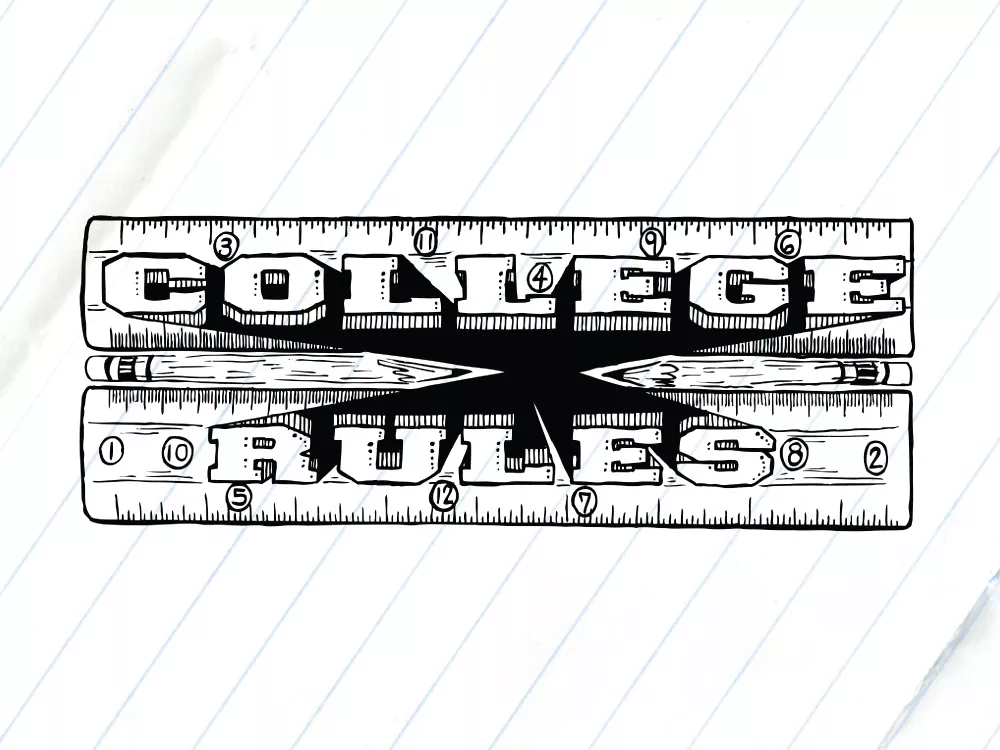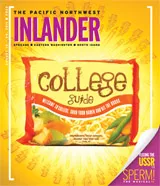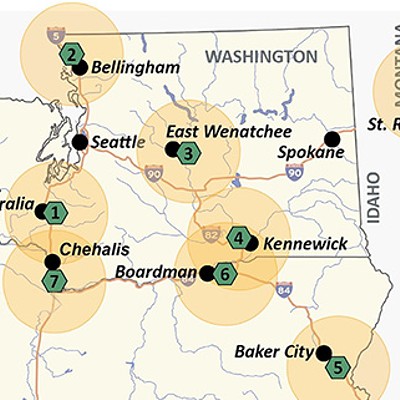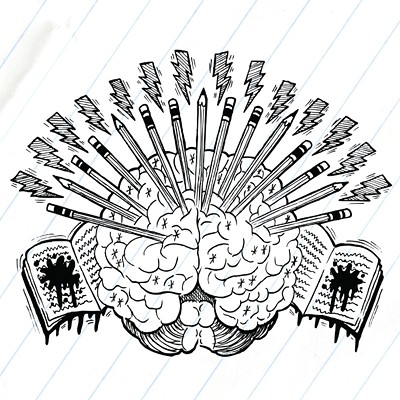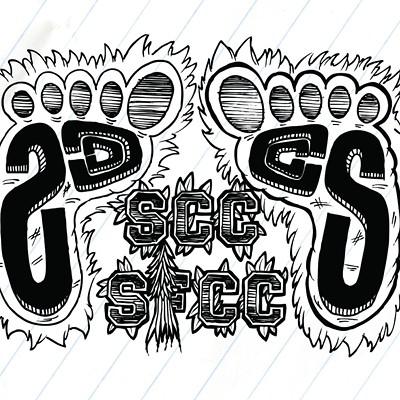Why a prank pulled at Whitworth looks different at WSU
Why the traditional four-year experience can be even richer for older students.
College can be a psychological pressure cooker. But there's help.
College Profiles: • Whitworth • Gonzaga • Eastern • WSU • University of Idaho • NIC • Spokane Community Colleges
College is a very special time for a student. But occasionally, the pure specialness of this time has a disorienting effect. Occasionally, said student may pound four Jager Bombs on an empty stomach and decide to go vandalize some cars just because it’s a Tuesday, to give a purely theoretical example.
Often those actions will get them into trouble. But the kind and degree of trouble varies from school to school.
Washington State University, for example, is at one extreme. Whitworth, at the other. All the other schools fall somewhere in between.
WSU: Crime and Punishment. So Much Punishment.
State colleges often have something the private schools don’t: their own bona fide police departments. Washington State University is no exception.
Once a student himself, Steve Hansen, lieutenant of the WSU Police “just stayed” after graduating, and has been at his job for over 28 years. When asked what causes most of the problems around campus, without a second of hesitation, he deadpans, “Alcohol.”
Most of the problems are mischief — stuff Hansen knows that students wouldn’t do when they are sober — but that doesn’t mean they’ll be let off. In fact, Hansen says WSU intentionally doesn’t give out “warnings.” Those don’t curb the bad behavior, he says.
In Pullman, students are subjected to not one but two police forces — the WSU Police and the city’s police department. That’s a lot of police for such a little town. But Hansen says staying out of trouble despite the heavy patrols is as simple as just, you know, not drawing attention to yourself.
“We don’t hide in the shadows,” says Hansen. “It’s the person that’s doing something that’s going to get the attention.”
When a student does get into trouble, Hansen says, they’ll be turned over to the Whitman County district court system, in addition to WSU student conduct officials. Basically, this means that one infraction goes through two penal systems — double trouble. Also, if a student from another university gets into trouble in Pullman, Hansen says it’s reported to their school’s conduct office.
No matter the situation, the best bet for those facing disciplinary action, Hansen says, is initial cooperation.
“I would never expect kids to give up their rights,” says Hansen. “You don’t have to admit to it or anything, but if you run or you fight, you’re just adding more consequences and charges to what’s already happened.”
Tip: WSU’s Student Legal Services offers legal counsel from a lawyer licensed to practice in both Washington and Idaho. Oh, and it’s free.
Whitworth: Phone Home
If you get in minor trouble at Whitworth, chances are they aren’t going to turn you in to the police. According to Dr. Richard Mandeville, associate dean of students, that’s not how they roll. But they will make you confess your indiscretions to your parents. Then your parents have to verify that conversation with Mandeville.
“We have very few second incidences,” Mandeville says with a chuckle.
The phone call, though, is the last step. Even though they’re not going to rat you out to the police, Whitworth’s disciplinary process is intended to be a learning experience. There’s the initial meeting with Mandeville, the student, and the student’s “support person.” Then, if the student is guilty, it’s off to a counselor for a written assessment, followed by community service, a fine, or both. Then the phone call.
It’s all based on the school’s three guidelines, called the “Big Three.” Boiled down, you aren’t supposed to drink on campus, cohabitate with those of the opposite sex, or be disruptive to others. Vague, yes. But that’s intentional.
“We try to not have a lot of rules,” says Mandeville. “We don’t want a rule-based conduct system. We want one that’s principle-based. The goal is to help them be successful.”
Arguably, both WSU and Whitworth want their students to be successful, but they do paint a clear contrast in methodologies, both in the rules themselves and how they’re enforced.
Pious Pranks: A History
Many have dabbled in the realm of college pranking, but few have moved beyond the sophomoric bounds of mascot thievery and chicken bouillon in dorm showerheads, and into the major leagues of mischief.
Here are some of the more notable pranks to have emerged from Inland Northwest universities.
Damn Squirrels!
The Palouse got its own version of V for Vendetta when, on November 5, 2010, a video speech by a person wearing a Guy Fawkes mask aired on video projectors in about two dozen classrooms at Washington State University. The video was set to automatically play every hour, spreading an urgent message to, well, rise up and eradicate the campus’ squirrel population. School officials were, as usual, totally not amused. Especially when the prank got national attention.
Rickroll Out of Control
On March 16, 2008, an Eastern Washington University student posted online a film that he had made, which showed what seemed to be him interrupting a women’s basketball game with the Rick Astley song “Never Gonna Give You Up” — a performance known online as “rickrolling.” The video was picked up and featured in a New York Times piece on the rickrolling phenomenon, but, as it turns out, the student had never rickrolled the game — the video was an elaborate fake. The joke, ultimately, had been on the Times.
No Smoking
A bronze statue of famous alum Bing Crosby smoking a pipe was introduced onto Gonzaga’s campus in 1981. But the pipe was stolen by pranksters so many times that the school now opts to keep it locked away, only screwing it on the statue for special occasions. Seriously.
Written Rivalry
In 2006, some students from Whitworth poked a little fun at rival school Gonzaga by writing “95 Theses Why Whitworth is Better Than Gonzaga” — a list modeled after Martin Luther’s 95 Theses. They posted 300 copies around GU, in addition to covering the bronze Bing’s head (see above) with a Whitworth-themed smiley face. The entire city proceeded to completely flip out. A few of the pranksters were ordered to say they were sorry. Everyone calmed down.

